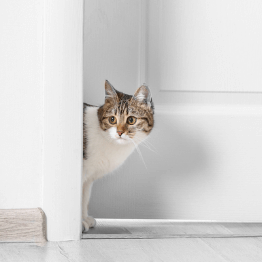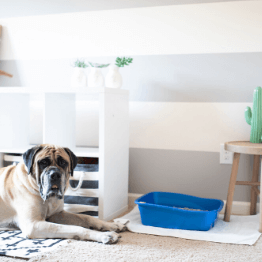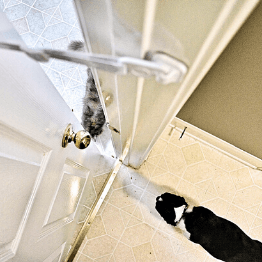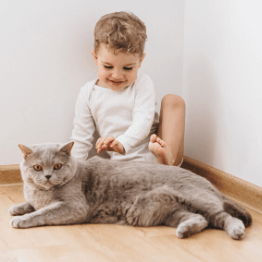CARING FOR OLDER DOGS
While there’s no such thing quite like puppy love, there’s nothing stronger than the love of an old furry friend! As your dog’s muzzle begins to gray, and their playtime becomes less, it may be time to look at taking some preventative steps to keep your doggo healthy, happy, and active.
Caring for older dogs can be an extraordinary time for you and your loved one as you enter into this new phase of life together.
HOW TO PREPARE FOR CARING FOR AN OLDER DOG
It may be hard to accept the fact that your doggo is no longer the bouncing puppy they once were. But, if you make senior dog care a priority by making a few small lifestyle changes early on, you can help prevent some major issues later in your pal’s life.
To best prepare for this change, we’d recommend getting clued up on when your dog actually becomes a senior. This period will differ for various breeds, but generally speaking, smaller dogs are expected to reach their golden years between 10 and 12. On the other hand, bigger dogs will need faster action as they’re considered “senior” from 5 or 6.
With the right mix of preventative methods and proactive attention, elderly dog care can be a breeze. It can also help extend a dog’s life! And, let’s be honest, who doesn’t want to have their favorite face-licker around for longer? Keep on reading for our best tips to help you with caring for older dogs.
OUR MOST EFFECTIVE SENIOR DOG CARE TIPS
Keep Up With Regular Vet Checks
For any parent, fur or hooman, keeping up with doctor appointments comes with the territory. Seeing your pet’s vet every year comes highly recommended to monitor your dog’s state of health. Should any issues arise or if you notice any sudden changes, don’t be afraid to up these visits to a more frequent basis.
Watch That Diet
As much as some of us may hate to hear it, diet is a large part of both our and our doggo’s health. Keeping your dog’s weight within the proper or optimum range can work wonders for their inevitable senior dog care.
Most vets may recommend feeding your pet once a day or trying smaller amounts twice a day. An overweight dog has far more health problems such as joint problems, arthritis, diabetes, and liver or kidney malfunctions.
For the best diet recommendations, it’s always safe to consult your vet. Alternatively, a great way to cut calories is to reduce the number of treats given to your pet - we know, this one’s hard for us too! There’s nothing quite like your doggo’s soulful eyes to really twist your arm, but stay strong! Remember, it’s for their own good.
Then there are the children. If you’re also a hooman parent, try explaining to your kids that while they may love feeding their pets their scraps or a sneaky treat, it may not be in their best interest.
Let's not forget the kitty food either. Your dog may love sneaking in an afternoon snack courtesy of your purring pet, but this should be avoided as much as possible. Not only are there more calories in cat food but it can provide your dog with insufficient nutrients that they need as they get older.
Luckily, keeping your dog out of the cat food... or litter box... is a quick fix. Simply throw on a Door Buddy adjustable pet door strap that easily allows your cat to enter the room with the cat food while stopping your dog from getting in. Problem solved!
Make Sure They're Hydrated
No matter how old your dog is, always make sure there is enough fresh, cold water available. Some older dogs have problems getting to the water bowl, so you may need to take extra precautions. You can try taking the water to them or placing bowls of water in several different places, so they do not have to go far for a drink. Their aching bones and joints will thank you!
Get Your Dog Active
Along with a healthy diet comes the balance of keeping your dog active. Caring for older dogs mostly comes down to how well you can get them out and about. Doing so will help get your dog’s blood circulation going while taking them to new sites can help stimulate their senses too.
He may be old, but your doggo will still be curious! Not to mention the added bonus of getting in some lovable quality time with your best pal.
Remember Their Teeth
As your dog ages, so does his teeth. This means that you may need to switch from dry food to a moist or canned food. His teeth may not be able to handle the hardness of dry kibbles, and we’re sure he’ll love the taste of gravy too!
There's a lot that you can do to make sure your home is as comfortable as possible for your doggo too. Make sure to read how to prepare your home for a senior pet for all the best tips.
Caring for older dogs is the perfect time to show your old friend how much you love them. Making an effort to take him to the vet regularly, keeping up a healthy diet, and getting in those extra minutes of exercise helps keep your dog healthy and happy for longer. After all, “old friends make the very bestest of best friends”!








